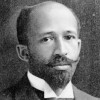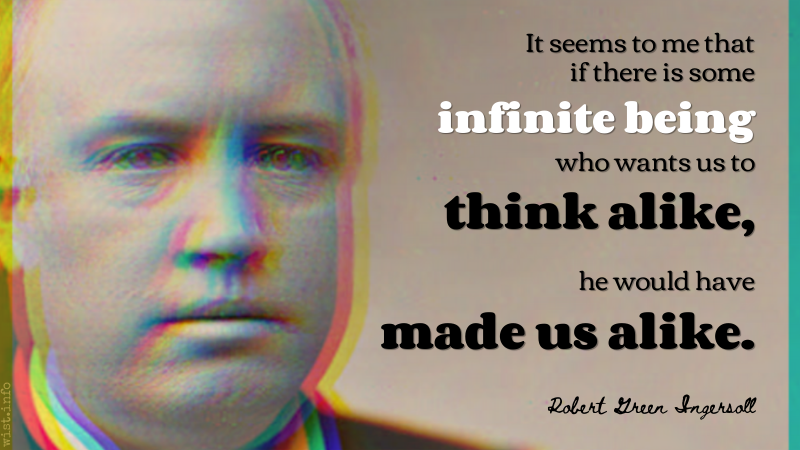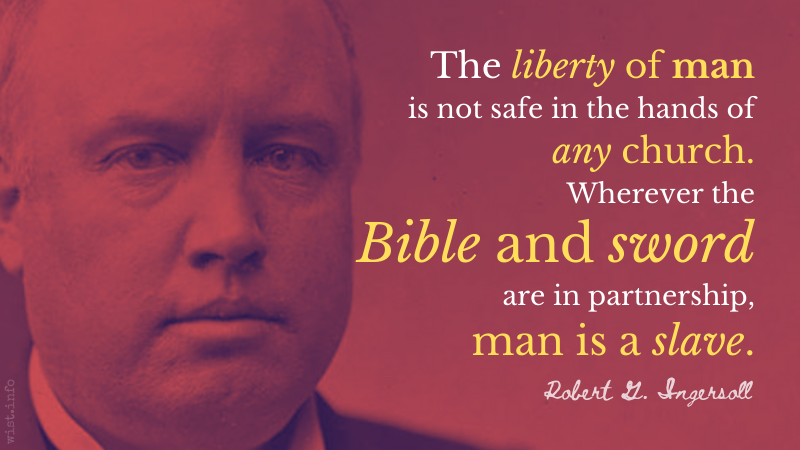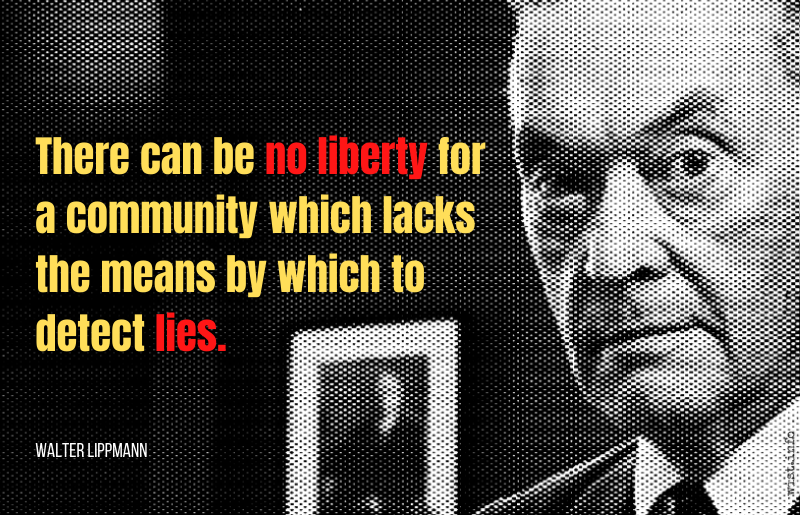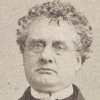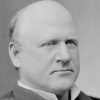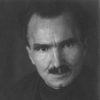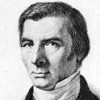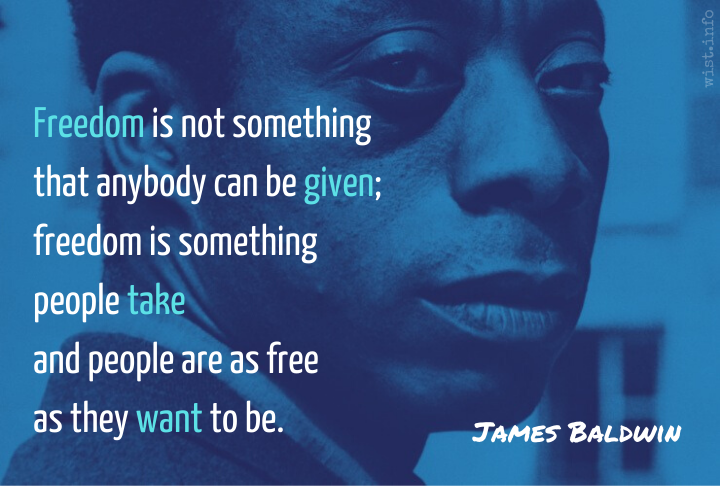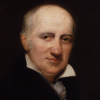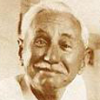Of all creation’s bounty realized,
God’s greatest gift, the gift in which mankind
is most like Him, the gift by Him most prized,
is the freedom he bestowed upon the will.
All his intelligent creatures, and they alone,
were so endowed, and so endowed are still.[Lo maggior don che Dio per sua larghezza
fesse creando, e a la sua bontate
più conformato, e quel ch’e’ più apprezza,
fu de la volontà la libertate;
di che le creature intelligenti,
e tutte e sole, fuore e son dotate.]Dante Alighieri (1265-1321) Italian poet
The Divine Comedy [Divina Commedia], Book 3 “Paradiso,” Canto 5, l. 19ff (5.19-24) [Beatrice] (1320) [tr. Ciardi (1970)]
(Source)
(Source (Italian)). Alternate translations:
That gem above all price by wifdom giv'n.
The most distinguish'd boon of fav'ring Heav'n,
The Stamp of Godhead on the human breast,
By him most priz'd, is Liberty of Choice;
A gift by none beneath the ambient Skies
But happy rationals alone possest.
[tr. Boyd (1802), st. 5]
Supreme of gifts, which God creating gave
Of his free bounty, sign most evident
Of goodness, and in his account most priz’d,
Was liberty of will, the boon wherewith
All intellectual creatures, and them sole
He hath endow’d.
[tr. Cary (1814)]
The greatest gift that God, creating, gave
Of his great bounty, and his goodness cost,
And that which he appreciated the most,
Was human liberty and our free will;
With which the creatures of intelligence,
And they alone, were dowered as with sense.
[tr. Bannerman (1850)]
The greatest gift that in his largess God
Creating made, and unto his own goodness
Nearest conformed, and that which he doth prize
Most highly, is the freedom of the will,
Wherewith the creatures of intelligence
Both all and only were and are endowed.
[tr. Longfellow (1867)]
The greatest gift which God of His bounty made in creating, and the most conformed to His goodness, and that which He most values, was the freedom of the will, wherewith the creatures that have intelligence all, and they only, were and are endowed.
[tr. Butler (1885)]
The greatest gift which God's creating grace
Made in His largess, to His clemency
The most conformed, and prized as first in place
Was of the will the perfect liberty,
With which the creatures of intelligence
Were dowered, and are, and they alone.
[tr. Minchin (1885)]
The greatest gift which God in His largess bestowed in creating, and the most conformed unto His goodness and that which He esteems the most, was the freedom of the will, with which all the creatures of intelligence, and they alone, were and are endowed.
[tr. Norton (1892)]
The greatest gift God of his largess made at the creation, and the most conformed to his own excellence, and which he most prizeth,
was the will's liberty, wherewith creatures intelligent, both all and only, were and are endowed.
[tr. Wicksteed (1899)]
The greatest gift that God in His bounty made in creation, the most conformable to His goodness and the one He accounts the most precious, was the freedom of the will, with which the creatures with intelligence, all and only these, were and are endowed.
[tr. Sinclair (1939)]
Of all the gifts God in His bounty extreme
Made when creating, most conformable
To His own goodness, and in His esteem
Most precious, was the liberty of the will,
With which creatures that are intelligent
Were all endowed, they only, and are so still.
[tr. Binyon (1943)]
The greatest gift of God’s largesse, when He
Created all, most prized by Him, and best,
As most akin to His own quality,
Was the will's freedom, crown of all the rest,
Whereof all creatures made intelligent,
They all, they only, were and are possessed.
[tr. Sayers/Reynolds (1962)]
The greatest gift which God in His bounty
bestowed in creating, and to His own goodness
the most conformed, and that which He prizes the most,
was of the will the freedom,
with which the creatures that have intelligence,
they all and they alone, were and are endowed.
[tr. Singleton (1975)]
The greatest gift which God in his open-handedness
Gave in creation, and the gift which most conformed
To his own excellence, and which he most values,
Was that of freedom of the will,
With which creatures created intelligent,
Each and all of them, were and are endowed.
[tr. Sisson (1981)]
The greatest gift the magnanimity
of God, as He created, gave, the gift
most suited to His goodness, gift that He
most prizes, was the freedom of the will;
those beings that have intellect -- all these
and none but these -- received and do receive this gift.
[tr. Mandelbaum (1984)]
The greatest gift that our bounteous Lord
bestowed as the Creator, in creating,
the gift He cherishes the most, the one
most like Himself, was freedom of the will,
All creatures with intelligence, and they
alone, were so endowed both then and now.
[tr. Musa (1984)]
The greatest gift that ever in his bountifulness God gave in creating, and the most conformed to his goodness, the one that is most prized,
was the freedom of the will, with which the creatures with intelligence, all of them and only they, were and are endowed.
[tr. Durling (2011)]
The greatest gift that God made at the Creation, out of his munificence, the one that most fitted his supreme goodness, and which he values most, is Free Will, with which intelligent creatures, all and sundry, were, and are, endowed.
[tr. Kline (2002)]
The greatest gift that God, in spacious deed,
made, all-creating -- and most nearly formed
to His liberality, most prized by Him --
was liberty in actions of the will,
with which all creatures of intelligence --
and they alone -- both were and are endowed.
[tr. Kirkpatrick (2007)]
The greatest gift that God in His largesse
gave to creation, the most attuned
to His goodness and that He accounts most dear,
was the freedom of the will:
all creatures possessed of intellect,
all of them and they alone, were and are so endowed.
[tr. Hollander/Hollander (2007)]
The greatest gift that God, in infinite bounty,
Bestowed on His creation, and the quality
Most like His goodness, as well as what He prices,
Was freedom of will, granted only to creatures
Of intelligence -- exclusively for them,
No others thus endowed.
[tr. Raffel (2010)]
Quotations about:
liberty
Note not all quotations have been tagged, so Search may find additional quotes on this topic.
For ourselves and for the present, we are safe; our immediate peril is past. But for how long are we safe; and how far have we removed our peril? If our nation could not itself exist half slave and half free, are we sure that it can exist in a world half slave and half free? Is the same conflict less irrepressible when world wide than it was eighty years ago when it was only nation wide? Right knows no boundaries, and justice no frontiers; the brotherhood of man is not a domestic institution.
Learned Hand (1872-1961) American jurist
“A Pledge of Allegiance,” speech, Central Park, New York City (1945-05-20)
(Source)
His second "I Am an American Day" address. Collected in The Spirit of Liberty (1953).
The other threat to the security of our tradition, I believe, lies at home. It is the current fear of radical ideas and of people who propound them. I do not agree with extremists of either the left or the right, but I think they should be allowed to speak and to publish, both because they themselves have, and ought to have, rights, and once their rights are gone, the rights of the rest of us are hardly safe.
Jane Jacobs (1916-2006) American-Canadian journalist, author, urban theorist, activist
“No Virtue in Meek Conformity” (1952)
(Source)
Foreword to her response to a State Department Loyalty Security Board interrogatory (1952-03-25). Reprinted in Vital Little Plans (2016).
I do not think military readiness, in itself, will defeat Communism. I do not think we can consider the job finished with that. I think it buys us time to do the bigger job. We must demonstrate that it is possible to overcome poverty, misery and decay by democratic means, and that we must ourselves believe, and must show others, that our American tradition of the dignity and liberty of the individual is not a luxury for easy times but is the basic source of strength and security of a successful society.
Jane Jacobs (1916-2006) American-Canadian journalist, author, urban theorist, activist
“No Virtue in Meek Conformity” (1952)
(Source)
Foreword to her response to a State Department Loyalty Security Board interrogatory (1952-03-25). Reprinted in Vital Little Plans (2016).
Perish all they who love to dwell in cities
subject to Kings, or to the mighty few,
For Freedom’s an invaluable name,
and he who hath but little, here is rich.[κακῶς δ’ ὄλοιντο πάντες οἳ τυραννίδι
χαίρουσιν ὀλίγῃ τ’ ἐν πόλει μοναρχίᾳ·
τοὐλεύθερον γὰρ ὄνομα παντὸς ἄξιον,
κἂν σμίκρ’ ἔχῃ τις, μεγάλ’ ἔχειν νομιζέτω.]Euripides (485?-406? BC) Greek tragic dramatist
Auge [Αὐγῃ], fr. 275 (TGF) (c. 408 BC) [tr. Wodhall (1809)]
(Source)
Nauck frag. 275, Barnes frag. 10, Musgrave frag. 7. (Source (Greek)). Alternate translations:
Pray that all who rejoice in tyranny,
Or in some small monarchy in their city, die terribly.
The name "freedom" is worth everything --
Even if he possesses a little, a man who has this is considered great.
[@sententiq (2015)]
Worth above all is a name fit for the free.
[Source]
A wise man neither lets himself be governed nor seeks to govern others: he wishes reason alone to govern, and for ever.
[Un homme sage ni ne se laisse gouverner, ni ne cherche à gouverner les autres: il veut que la raison gouverne seule et toujours.]
Jean de La Bruyère (1645-1696) French essayist, moralist
The Characters [Les Caractères], ch. 4 “Of the Heart [Du Coeur],” § 71 (4.71) (1688) [tr. Stewart (1970)]
(Source)
(Source (French)). Alternate translations:
A Wise Man neither suffers himself to be govern'd, nor attempts to govern others. 'Tis his reason alone which always governs him.
[Bullord ed. (1696)]
A Wise Man neither suffers himself to be govern'd, nor attempts to govern others. He wou'd have Reason alone always to govern him.
[Curll ed. (1713)]
An intelligent man neither allows himself to be controlled nor attempts to control others; he wishes reason alone to rule, and that always.
[tr. Van Laun (1885)]
There is no Negro problem. There is no Southern problem. There is no Northern problem. There is only an American problem. And we are met here tonight as Americans — not as Democrats or Republicans — we are met here as Americans to solve that problem.
This was the first nation in the history of the world to be founded with a purpose. The great phrases of that purpose still sound in every American heart, North and South: “All men are created equal” — “government by consent of the governed” — “give me liberty or give me death.” Well, those are not just clever words, or those are not just empty theories. In their name Americans have fought and died for two centuries, and tonight around the world they stand there as guardians of our liberty, risking their lives.
Those words are a promise to every citizen that he shall share in the dignity of man. This dignity cannot be found in a man’s possessions; it cannot be found in his power, or in his position. It really rests on his right to be treated as a man equal in opportunity to all others. It says that he shall share in freedom, he shall choose his leaders, educate his children, and provide for his family according to his ability and his merits as a human being.
To apply any other test — to deny a man his hopes because of his color or race, his religion or the place of his birth — is not only to do injustice, it is to deny America and to dishonor the dead who gave their lives for American freedom.Lyndon B. Johnson (1908-1973) American politician, educator, US President (1963-69)
Speech (1965-03-15), “The American Promise,” Joint Session of Congress [07:41]
(Source)
Liberty trains for liberty. Responsibility is the first step in responsibility.
W. E. B. Du Bois (1868-1963) American writer, historian, social reformer [William Edward Burghardt Du Bois]
John Brown, ch. 13 “The Legacy of John Brown” (1909)
(Source)
On the policy among white colonial powers that non-whites "ought to be under the restraint and benevolent tutelage of stronger and wiser nations for their own benefit," until they are "capable" of being free.
No form of liberty is worth a darn which doesn’t give us the right to do wrong now and then.
H. L. Mencken (1880-1956) American writer and journalist [Henry Lewis Mencken]
A Little Book in C Major, ch. 3, § 16 (1916)
(Source)
On the necessary points, unity. On the questionable points, liberty. In everything, love.
Augustine of Hippo (354-430) Christian church father, philosopher, saint [b. Aurelius Augustinus]
(Misattributed)
A commentary on theological / doctrinal dispute, frequently attributed to Augustine, but not found in his works.
The first known occurrence of such an expression is in Marco Antonio de Dominis, De Republica Ecclesiastica, Book 4, ch. 8, penultimate sentence (1617):
Omnesque mutuam amplecteremur unitatem in necessariis, in non necessariis libertatem, in omnibus caritatem.
[And let us all embrace one another, unity in what is necessary, liberty in what is not necessary, charity in all things.]
The phrase was also adapted by Richard Baxter (1615-1691) as his motto. See also Rupertus Meldenius (1626).
More discussion about this quotation here: Liber locorum communium: In necessariis unitas, in non necessariis libertas, in utrisque caritas (Marco Antonio De Dominis, 1617), cf. In necessariis unitas, in dubiis libertas, in omnibus caritas (and other variants). English: "In essentials unity ..."
I never diskuss politiks nor sektarianism; i beleave in letting every man fight hiz rooster hiz own way.
[I never discuss politics nor [religious] sectarianism; I believe in letting every man fight his rooster his own way.]Josh Billings (1818-1885) American humorist, aphorist [pseud. of Henry Wheeler Shaw]
Everybody’s Friend, Or; Josh Billing’s Encyclopedia and Proverbial Philosophy of Wit and Humor, ch. 131 “Affurisms: Plum Pits (1)” (1874)
(Source)
We want perfection in other people, and yet we do not put right our own failings. We want to see others firmly corrected, but we refuse correction ourselves. We take offence when permission is given to others, but we do not want our own requests refused. We want rules to check the activities of others, but we are indignant at restrictions on ourselves.
[Libenter videmus alios perfectos, sed tamen proprios non emendamus defectus. Volumus quod alii districte corrigantur, et nos ipsi corrigi nolumus, aut negari quod petimus. Alios restringi per statuta volumus, et ipsi nullatenus patimur amplius cohiberi.]
Thomas à Kempis (c. 1380-1471) German-Dutch priest, author
The Imitation of Christ [De Imitatione Christi], Book 1, ch. 16, v. 2ff (1.16.2-3) (c. 1418-27) [tr. Knott (1962)]
(Source)
(Source (Latin)). Alternate translations:
We would gladly have others perfect, but will not amend our own defaults. We would that others should be straitly corrected for their offences, but we will not be corrected. It misliketh us that others have liberty, but we will not be denied of that we ask. We would also that others should be restrained according to the statutes, but we in nowise will be restrained.
[tr. Whitford/Raynal (1530/1871)]
We would gladly have others perfect, yet we will not amend our own faults. We desire others to be strictly corrected for their offenses, yet we will not be corrected. We dislike it that others have liberty, yet we will not be denied what we ask. We desire that others should be restrained according to the laws, yet we will in no way be restrained.
[tr. Whitford/Gardiner (1530/1955)]
It is injustice to expect that in another which thou hast not in thy self, to looke for perfection in others, and yet not to amend imperfections in our selves. We will have others severely punisht, and will not amend our selves; the large liberty of others disliketh us, and yet we will not have our desires deni'd us, we will have rigorous Lawes imposed upon others, but in no sort will we our selves be restrained.
[tr. Page (1639), 1.16.8-9]
And, indeed, nothing is more common, than to express exceeding Zeal in amending our Neighbours, and mighty Indignation against Their Vices or Imperfections, while at the same time we neglect the beginning at Home, and either quite overlook, or seem highly contented with our own. We set up for Reformers, declaim at the Wickendess of the Age, and are all for suppressing and punishing it by vigorous Laws; and yet are unwilling that any Check or Restraint should be put upon our own Freedoms.
[tr. Stanhope (1696; 1706 ed.)]
But we require perfection in the rest of mankind, and take no care to rectify the disorders of our own heart; we desire that the faults of others should be severely punished, and refuse the gentlest correction ourselves; we are offended at their licentiousness, and yet cannot bear the least opposition to our own immoderate desires. We would subject all to the control of rigorous statute and penal laws, but will not suffer any restraint upon our own actions.
[tr. Payne (1803), 1.16.3]
We would willingly have others perfect, and yet we amend not our own faults. We will have others severely corrected, and will not be corrected ourselves. The large liberty of others displeaseth us; and yet we will not have our own desires denied us. We will have others kept under by strict laws; but in no sort will ourselves be restrained.
[ed. Parker (1841)]
We willingly require perfection in the rest of mankind, and yet do not rectify the disorders of our own hearts. We desire that the faults of others should be severely punished, and refuse the gentlest correction ourselves. We are offended at their licentiousness, and yet cannot bear the least denial of our own immoderate desires. We would subject all to the control of rigorous statutes, but suffer no restraint upon our own action.
[tr. Dibdin (1851)]
We would fain have others perfect, and yet we amend not our own defects. We would have others strictly corrected, but will not be corrected ourselves. The large liberty of others displeases us, and yet we would not be denied anything we ask for. We wish others to be bound down by laws, and we suffer ourselves to be in no sort restrained.
[ed. Bagster (1860)]
We are ready to see others made perfect, and yet we do not amend our own shortcomings. We will that others be straitly corrected, but we will not be corrected ourselves. The freedom of others displeaseth us, but we are dissatisfied that our own wishes shall be denied us. We desire rules to be made restraining others, but by no means will we suffer ourselves to be restrained.
[tr. Benham (1874)]
We are desirous to have others perfect, and yet we amend not our own faults. We will have others severely corrected, and will not be corrected ourselves. The large liberty of others displeaseth us; and yet we will not have our own desires denied us. We will have others kept under by strict laws; but in no sort will we ourselves be restrained.
[tr. Anon. (1901)]
We want them to be perfect, yet we do not correct our own faults. We wish them to be severely corrected, yet we will not correct ourselves. Their great liberty displeases us, yet we would not be denied what we ask. We would have them bound by laws, yet we will allow ourselves to be restrained in nothing.
[tr. Croft/Bolton (1940)]
We would readily have others perfect and yet not amend our own defects. We want others rigidly corrected and are unwilling to be corrected ourselves. The wide freedom of others displeases us, and yet we would not be denied whatever we ask. We wish others to be bound by rules, and will ourselves in no way be held in.
[tr. Daplyn (1952)]
For we require other people to be perfect, but do not correct our own faults. We wish to see others severely reprimanded; yet we are unwilling to be corrected ourselves. We wish to restrict the liberty of others, but are not willing to be denied anything ourselves. We wish others to be bound by rules, yet we will not let ourselves be bound.
[tr. Sherley-Price (1952)]
We like to have everybody around us quite perfect, but our own faults -- we never seem to correct them. Tom, Dick and Harry must be strictly called to order, but we aren't fond of being called to order ourselves. It is always the other man that has too much rope given him -- our wishes must not be thwarted; rules for everybody else, but our own liberties must not be abridged for a moment.
[tr. Knox-Oakley (1959), 1.16.3]
Though quick to expect perfection in others, we take little care to correct our own shortcomings. We wouidl have others strictly corrected, but not ourselves. The wide freedom of others displeases us, yet we wish to be denied nothing that we ourselves desire. We would have others under the restraint of the rule while unwilling ourselves to be under any sort of restraint.
[tr. Rooney (1979)]
We would willingly have others be perfect, and yet we fail to correct our own faults. We want others to be strictly corrected, and yet we are unwilling to be corrected ourselves. Other peoples' far-ranging freedom annoys us, and yet we insist on having our own way. We wish others to be tied down by rules, and yet we will not allow ourselves to be held in check in any way at all.
[tr. Creasy (1989)]
The First Amendment is truly the heart of the Bill of Rights. The Framers balanced its freedoms of religion, speech, press, assembly and petition against the needs of a powerful central government, and decided that in those freedoms lies this nation’s only true security. They were not afraid for men to be free. We should not be.
Hugo Black (1886-1971) American politician and jurist, US Supreme Court Justice (1937-71)
James Madison Lecture, NYU School of Law (1960-02-17)
(Source)
The inaugural Madison lecture. Reprinted as "The Bill of Rights," NYU Law Review, Vol. 35 (1960-04).
Freedom is more precious than any gifts for which you may be tempted to give it up.
[Más preciosa es la libertad que la dádiva, porque se pierde.]
Baltasar Gracián y Morales (1601-1658) Spanish Jesuit priest, writer, philosopher
The Art of Worldly Wisdom [Oráculo Manual y Arte de Prudencia], § 286 (1647) [tr. Jacobs (1892)]
(Source)
(Source (Spanish)). Alternate translations:
Liberty is more precious than all gifts: and to receive, is to lose it.>br?
[Flesher ed. (1685)]Independence is more precious, than any gift for which you might forfeit it.
[tr. Fischer (1937)]
Freedom is more precious then the gift that makes us lose it.
[tr. Maurer (1992)]
I have begun in old age to understand just how oddly we are all put together. We are so proud of our autonomy that we seldom if ever realize how generous we are to ourselves, and just how stingy with others. One of the booby traps of freedom — which is bordered on all sides by isolation — is that we think so well of ourselves. I now see that I have helped myself to the best cuts at life’s banquet.
Civilization is the progress toward a society of privacy. The savage’s whole existence is public, ruled by the laws of his tribe. Civilization is the process of setting man free from men.
Ayn Rand (1905-1982) Russian-American writer, philosopher
The Fountainhead, ch. 18 [Roark] (1943)
(Source)
Democracy is based on a profound insight into human nature, the realization that all men are sinful, all are imperfect, all are prejudiced, and none knows the whole truth. That is why we need liberty and why we have an obligation to hear all men. Liberty gives us a chance to learn from other people, to become aware of our own limitations, and to correct our bias. Even when we disagree with other people we like to think that they speak from good motives, and while we realize that all men are limited, we do not let ourselves imagine that any man is bad. Democracy is a political system for people who are not sure that they are right.
E. E. Schattschneider (1892-1971) American political scientist [Elmer Eric Schattschneider]
Two Hundred Million Americans in Search of a Government (1969)
(Source)
Most anarchists believe the coming change can only come through a revolution, because the possessing class will not allow a peaceful change to take place; still we are willing to work for peace at any price, except at the price of liberty.
Lucy Parsons (1851-1942) American labor organizer, anarchist, orator [a.k.a. Lucy Gonzalez]
“The Principles of Anarchism,” lecture (1905)
(Source)
We’re stronger because we’re democracies. We’re not afraid of free and fair elections, because true legitimacy can only come from one source — and that is the people. We’re not afraid of an independent judiciary, because no one is above the law. We’re not afraid of a free press or vibrant debate or a strong civil society, because leaders must be held accountable. We’re not afraid to let our young people go online to learn and discover and organize , because we know that countries are more successful when citizens are free to think for themselves.
Barack Obama (b. 1961) American politician, US President (2009-2017)
Speech, Nordea Concert Hall, Tallinn, Estonia (3 Sep 2014)
(Source)
But we must recognize that democracies don’t stop just with elections; they also depend on strong institutions and a vibrant civil society, and open political space, and tolerance of people who are different than you. We have to create an environment where the rights of every citizen, regardless of race or gender, or religion or sexual orientation are not only protected, but respected.
Barack Obama (b. 1961) American politician, US President (2009-2017)
Speech, Young Southeast Asian Leaders Initiative Town Hall, University of Malaya, Kuala Lumpur, Malaysia (27 Apr 2014)
(Source)
Tolerance is a better guarantee of freedom than brotherly love; for a man may love his brother so much he feels himself thereby appointed his brother’s keeper.
Everett Dean Martin (1880-1941) American educator, minister, writer, lecturer
Liberty (1930)
(Source)
Freedom is not a luxury that we can indulge in when at last we have security and prosperity and enlightenment; it is, rather, antecedent to all of these, for without it we can have neither security nor prosperity nor enlightenment.
Henry Steele Commager (1902-1998) American historian, writer, activist
Freedom, Loyalty, Dissent, Preface (1954)
(Source)
My political opinions lean more and more to Anarchy (philosophically understood, meaning abolition of control not whiskered men with bombs). […] The most improper job of any man, even saints (who at any rate were at least unwilling to take it on), is bossing other men. Not one in a million is fit for it, and least of all those who seek the opportunity.
J.R.R. Tolkien (1892-1973) English writer, fabulist, philologist, academic [John Ronald Reuel Tolkien]
Letter to Christopher Tolkien (1943-11-29)
(Source)
Letter 52 in Humphrey Carpenter, ed., The Letters of J.R.R. Tolkien (1981).
You know, you have to really decide where you want to live: if you want to live in the jungle or in the zoo. Because if you want the beauty, if you want freedom, the jungle is … that’s your world. But you’re in danger there, you have to live with snakes, sharks, tigers, skunks, you know, mosquitoes, leeches. You want to be safe, you have to live in the zoo. You are protected. You know, if you are a lamb, the tiger will not attack you. You know, you’ll get a little bit something to eat every day; that’s fine. You have to work hard, but you live behind the bars, and what’s wonderful — you live there behind the bars and you dream about the beauty of the jungle. Now what happened was that the bars opened, and everybody runs after the dream. And suddenly, well, yeah, it’s beautiful — yes, I am free to go wherever I want, do whatever I want, but where do I want to go? Oh, my God, and here is a tiger and here’s a snake. Oh, oh, and people have a tendency to, you know, back. And you will be surprised how many people prefer to live in the zoo; they are not ready to pay for the freedom; they think that freedom should be, you know, for free, even for granted, which never is, never is.
Jan Tomáš "Miloš" Forman (1932-2018) Czech-American film director, screenwriter, actor, academic
National Security Archive interview (18 Jan 1997)
(Source)
On life and work in the post-Communist world.
The oldest argument against SF is both the shallowest and the profoundest: the assertion that SF, like all fantasy, is escapist. […] If it’s worth answering, the best answer is given by Tolkien, author, critic, and scholar. Yes, he said, fantasy is escapist, and that is its glory. If a soldier is imprisoned by the enemy, don’t we consider it his duty to escape? The moneylenders, the know-nothings, the authoritarians have us all in prison; if we value the freedom of the mind and soul, if we’re partisans of liberty, then it’s our plain duty to escape, and to take as many people with us as we can.
Ursula K. Le Guin (1929-2018) American writer
“Escape Routes,” Galaxy (Dec 1974)
Reprinted in The Language of the Night (1979).
Though Le Guin makes it clear it's a paraphrase, the main body of this passage is often misrepresented as an actual quotation from J. R. R. Tolkien (and with an exclamation point on the final sentence). It was, instead, inspired by Tolkien's comments on escapism in "On Fairy-Stories" (1939).
More discussion on this quotation: Not a Tolkien quote: "Fantasy is escapist, and that is its glory" - thetolkienist.com
[The first principle of British democracy is] our prime duty to each other and to what our conscience tells us to be right. If this leads individuals into conflict with the law, those individuals must be ready to take the consequences non-violently. In our democracy no man should tell another man to break the law, nor should any man break the law to by-pass Parliament. But a person who is punished for breaking an unjust law may if he is sincere and his cause wins public sympathy, create a public demand to have that unjust law changed through Parliament. This is the first and most fundamental principle of British democracy. It has a deep moral significance. Our religious and political liberties rest upon it.
The nature of liberal democracy prevents propagandistic statements from being banned, since among the liberties it permits is the freedom of speech. But since humans have characteristic rational weaknesses and are susceptible to flattery and manipulation, allowing propaganda has a high likelihood of leading to tyranny, and hence to the end of liberal democracy.
Jason Stanley (b. 1969) American philosopher, epistemologist, academic
How Propaganda Works, ch. 1 (2015)
(Source)
It seems to me that if there is some infinite being who wants us to think alike, he would have made us alike.
Robert Green Ingersoll (1833-1899) American lawyer, agnostic, orator
Speech to the Jury, Trial of C. B. Reynolds for Blasphemy, Morristown, New Jersey (May 1887)
(Source)
Religious freedom should work two ways: we should be free to practice the religion of our choice, but we must also be free from having someone else’s religion practiced on us.
John Irving (b. 1942) American-Canadian novelist and screenwriter [b. John Wallace Blunt Jr.]
My Movie Business, ch. 8 (1999)
(Source)
If none of us is prepared to die for freedom, then all of us will die under tyranny.
Timothy Snyder (b. 1969) American historian, author
On Tyranny: Twenty Lessons from the Twentieth Century (2017)
(Source)
The liberty of man is not safe in the hands of any church. Wherever the Bible and sword are in partnership, man is a slave.
Robert Green Ingersoll (1833-1899) American lawyer, agnostic, orator
Some Mistakes of Moses, ch. 3 “The Politicians” (1879)
(Source)
There can be no liberty for a community which lacks the means by which to detect lies.
Walter Lippmann (1889-1974) American journalist and author
“What Modern Liberty Means,” Liberty and the News (1920)
(Source)
Freedom only means the freedom to be stupid. Because you don’t need freedom to do what everybody thinks you should.
Penn Jillette (b. 1955) American stage magician, actor, musician, author
“Honest Questions with Penn Jillette,” Interview by Glen Beck, CNN (2 Nov 2007)
(Source)
Economics is the art of allocating scarce goods among competing demands. The conceit of Marxism was the thought that in Communism, economics would be “abolished”; this was why one did not have to think about the questions of relative privilege and social justice. But the point is that we still have to think about economics, and probably always will. The question, then, is whether we can arrive at a set of normative rules which seek to protect liberty, reward achievement and enhance the social good, within the constraints of “economics”.
“The right to think, to know and to utter,” as John Milton said, is the dearest of all liberties. Without this right, there can be no liberty to any people; with it, there can be no slavery.
John A. Andrew (1818-1867) American lawyer, politician, abolitionist
Letter (1860)
(Source)
Letter written after his election as Massachusetts governor. referencing Milton's Areopagitica. Quoted by Wendell Phillips in his "Mobs and Education" speech (16 Dec 1860), and often attributed to Phillips.
In our time, as in times before, creep on the insidious forces that, producing inequality, destroy Liberty. On the horizon the clouds begin to lower. Liberty calls to us again. We must follow her further; we must trust her fully. Either we must wholly accept her or she will not stay. It is not enough that men should vote; it is not enough that they should be theoretically equal before the law. They must have liberty to avail themselves of the opportunities and means of life; they must stand on equal terms with reference to the bounty of nature. Either this, or Liberty withdraws her light! Either this, or darkness comes on, and the very forces that progress has evolved turn to powers that work destruction. This is the universal law. This is the lesson of the centuries. Unless its foundations be laid in justice the social structure cannot stand.
Henry George (1839-1897) American economist
The Law of Human Progress, Book 10, ch. 5 “The Central Truth” (1879)
(Source)
The greatest bloodshed? The most murders? I would say two things: sincere love and a sincere devotion to liberty. … If you kill out of love or for the perfect utopia, you never stop killing because human nature is always imperfect.
Peter Viereck (1916-2006) American poet, historian, academic
“Clio is No Cleo: The Messiness of History,” lecture, Mt. Holyoke College (1997)
(Source)
Reprinted in Society (Mar 2004) and collected in Strict Wildness (2008).
The liberty secured by the Constitution of the United States does not import an absolute right in each person to be at all times, and in all circumstances, wholly freed from restraint. […] Upon the principle of self-defense, of paramount necessity, a community has the right to protect itself against an epidemic of disease which threatens the safety of its members. […] In every well ordered society charged with the duty of conserving the safety of its members the rights of the individual in respect of his liberty may at times, under the pressure of great dangers, be subjected to such restraint, to be enforced by reasonable regulations, as the safety of the general public may demand.
John Marshall Harlan (1833-1911) American lawyer, politician, Supreme Court Justice (1877-1911)
Jacobson v. Massachusetts, 197 U.S. 11 (20 Feb 1905) [majority opinion]
(Source)
Our law affords constitutional protection to personal decisions relating to marriage, procreation, contraception, family relationships, child rearing, and education. Our cases recognize “the right of the individual, married or single, to be free from unwarranted governmental intrusion into matters so fundamentally affecting a person as the decision whether to bear or beget a child.” Our precedents “have respected the private realm of family life which the state cannot enter.” These matters, involving the most intimate and personal choices a person may make in a lifetime, choices central to personal dignity and autonomy, are central to the liberty protected by the Fourteenth Amendment. At the heart of liberty is the right to define one’s own concept of existence, of meaning, of the universe, and of the mystery of human life. Beliefs about these matters could not define the attributes of personhood were they formed under compulsion of the State.
Anthony Kennedy (b. 1936) US Supreme Court Justice
Planned Parenthood v. Casey (91-744), 505 U.S. 833 (29 Jun 1992) [Majority Opinion]
(Source)
Citations removed.
A person needs a little madness, or else they never dare cut the rope and be free.
Nikos Kazantzakis (1883-1957) Greek writer and philosopher
Zorba the Greek (1946)
Adapted in the 1964 screenplay by Mihalis Kakogiannis as:ZORBA: Boss, I like you too much not to say it. You've got everything except one thing: madness! A man needs a little madness, or else.
BASIL: Or else?
ZORBA: Or else, he never dares cut the rope and be free.
Any power must be the enemy of mankind which enslaves the individual by terror and force, whether it arises under a Fascist or Communist flag. All that is valuable in human society depends on the opportunity for development accorded to the individual.
Albert Einstein (1879-1955) German-American physicist
Press statement, England (15 Sep 1933)
(Source)
Men cannot be made good by the state, but they can easily be made bad. Morality depends on liberty.
John Dalberg, Lord Acton (1834-1902) British historian
Note #10, in George Watson, Lord Acton’s History of Liberty (1994)
(Source)
Since the natural tendencies of mankind are so bad that it is not safe to allow them liberty, how comes it to pass that the tendencies of organizers are always good? Do not the legislators and their agents form a part of the human race? Do they consider that they are composed of different materials from the rest of mankind? They say that society, when left to itself, rushes to inevitable destruction, because its instincts are perverse. They presume to stop it in its downward course, and to give it a better direction. They have, therefore, received from heaven, intelligence and virtues that place them beyond and above mankind: let them show their title to this superiority.
Frédéric Bastiat (1801-1850) French philosopher, economist, politician
The Law (1850)
(Source)
Alt. trans.: "If the natural tendencies of mankind are so bad that it is not safe to permit people to be free, how is it that the tendencies of these organizers are always good? Do not the legislators and their appointed agents also belong to the human race? Or do they believe that they themselves are made of a finer clay than the rest of mankind? The organizers maintain that society, when left undirected, rushes headlong to its inevitable destruction because the instincts of the people are so perverse. The legislators claim to stop this suicidal course and to give it a saner direction. Apparently, then, the legislators and the organizers have received from Heaven an intelligence and virtue that place them beyond and above mankind; it so, let them show their titles to this superiority." [Source]
We are willing enough to praise freedom when she is safely tucked away in the past and cannot be a nuisance. In the present, amidst dangers whose outcome we cannot foresee, we get nervous about her, and admit censorship.
E. M. Forster (1879-1970) English novelist, essayist, critic, librettist [Edward Morgan Forster]
“The Tercentenary of the Areopagitica,” Two Cheers for Democracy (1951)
(Source)
It is worse than useless to try to put down by law a practice which a very large number of people believes to be innocent, and which must be left to the taste and conscience of the individual.
William Ralph Inge (1860-1954) English prelate [Dean Inge]
“The Birth-Rate” (1917), Outspoken Essays: First Series (1919)
(Source)
Speaking of birth control.
Let us shun extremes, not only because each extreme is in itself a positive evil, but also because each extreme necessarily engenders its opposite. If we love civil and religious freedom, let us in the day of danger uphold law and order. If we are zealous for law and order, let us prize, as the best safeguard of law and order, civil and religious freedom.
Thomas Babington Macaulay (1800-1859) English writer and politician
Speech on re-election to Parliament, Edinburgh (2 Nov 1852)
(Source)
Let me point out to you that freedom is not something that anybody can be given; freedom is something people take and people are as free as they want to be. One hasn’t got to have an enormous military in order to be unfree when it’s simpler to be asleep, when it’s simpler to be apathetic, when it’s simpler, in fact, not to want to be free, to think that something else is more important.
James Baldwin (1924-1987) American novelist, playwright, activist
“Notes for a Hypothetical Novel,” speech, San Francisco College (22 Oct 1960)
(Source)
Later published in Nobody Knows My Name (1961).
Opinions are not to be learned by rote, like the letters of an alphabet, or the words of a dictionary. They are conclusions to be formed, and formed by each individual in the sacred and free citadel of the mind, and there enshrined beyond the arm of law to reach, or force to shake; ay! and beyond the right of impertinent curiosity to violate, or presumptuous arrogance to threaten.
Frances "Fanny" Wright (1795-1852) Scottish-American writer, lecturer, social reformer
A Course of Popular Lectures, Lecture 6 “Formation of Opinions” (1829)
(Source)
Conscience and the press ought to be unrestrained, not because men have a right to deviate from the exact line that duty prescribes, but because society, the aggregate of individuals, has no right to assume the prerogative of an infallible judge, and to undertake authoritatively to prescribe to its members in matters of pure speculation.
William Godwin (1756-1836) English journalist, political philosopher, novelist
Enquiry Concerning Political Justice, Book 2, ch. 5 (1793)
(Source)
Stone walls do not a prison make,
Nor iron bars a cage.
The English, of all ranks and classes, are at bottom, in all their feelings, aristocrats. They have some concept of liberty, & set some value on it, but the very idea of equality is strange & offensive to them. They do not dislike to have many people above them as long as they have some below them.
John Stuart Mill (1806-1873) English philosopher and economist
Letter to Giussepe Mazzini (15 Apr 1858)
(Source)







